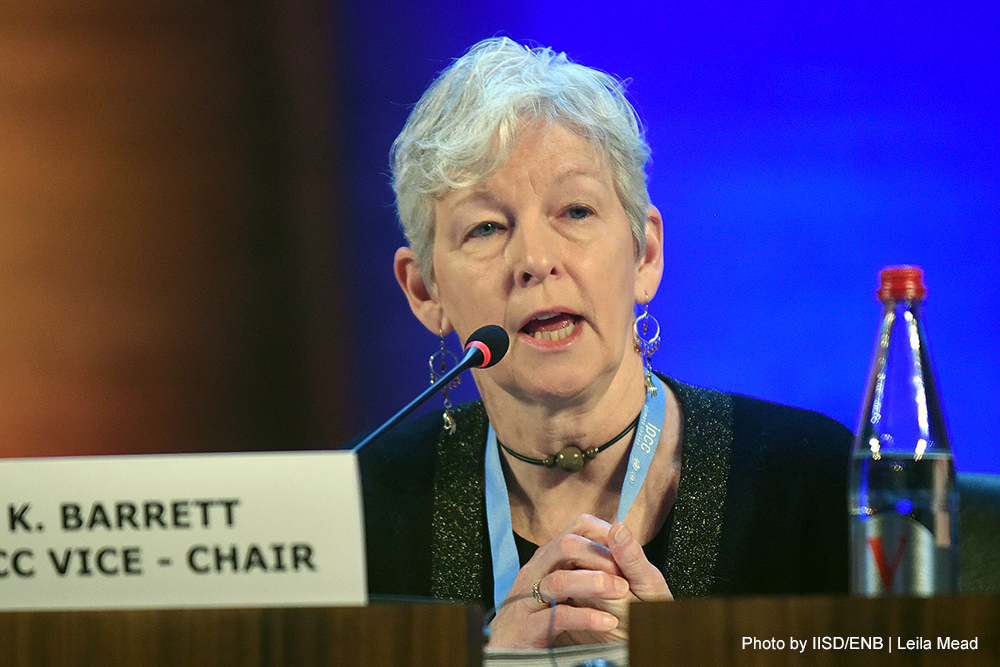When asked about why she knows her work matters, Ko Barrett, who serves as a vice chair of the Intergovernmental Panel on Climate Change (IPCC) as well as a senior advisor for climate at the U.S. National Oceanic and Atmospheric Administration (NOAA), recalled a trip to the Shishmaref region of Alaska, just north of the Bering Strait.
“I went to hear stories of how climate change was impacting the lives of the Indigenous people there,” she said in a GLF Live. “And I heard about how they would go off to do their sustenance hunting, and people would be lost in the traveling. The ice was too thin to hold up family members.”
In her work for the IPCC, Barrett is often called upon to explain the latest global climate information and to share why climate change matters. While building understanding of this science is of the utmost importance, Barrett has found that traveling to communities – like Shishmaref – and listening to people’s experiences has helped her to put a face on the way climate change is impacting our lives.
This dual connection to people and science is a key ingredient to Barrett’s leadership. By building these connections, Barrett finds she can more effectively share the global climate story in a grounded way that resonates and encourages more people to get involved – a cause about which Barrett is passionate.
“We know that the best solutions to complex problems come when we harness diverse ideas and perspectives,” she said. “Climate change is one of the most complex problems we face. We need to tap into solutions that arise from every corner of the Earth to solve this global challenge.”
Accordingly, Barrett strives to use her platform to advocate for increased diversity and inclusion in climate science. One way she does so within the IPCC is through co-heading its Gender Action Team in order to enhance gender equality within the IPCC’s processes. While the percentage of lead women authors on IPCC reports has improved from 15 to 32 percent under Barrett’s leadership, she aims to see this number continue to rise and to pave the way for the next generation of women in climate science.
“Women supporting and encouraging each other to work hard and succeed is a force to be reckoned with,” she says.




